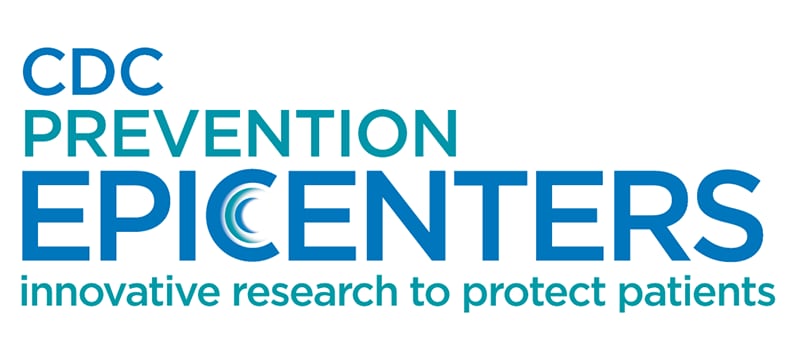Harvard Prevention Epicenter

About this Epicenter
The Harvard Epicenter is jointly led by Drs. Michael Klompas and Richard Platt at the Department of Population Medicine, Harvard Medical School/Harvard Pilgrim Health Care Institute and includes collaborations with Mass General Brigham, HCA Healthcare, the University of California Irvine, the University of Iowa, the University of Massachusetts Amherst, California State University Sacramento, Emory University, and Duke University.
Accomplishments:
Harvard University has had the privilege of serving as a CDC Prevention Epicenter for more than 20 years. Highlights of this Epicenter’s previous efforts include the foundational work underlying some of the National Healthcare Safety Network’s (NHSN’s) new and emerging surveillance metrics (ventilator-associated events, adult sepsis events, and non-ventilator hospital-acquired pneumonia), leadership of pragmatic cluster randomized trials demonstrating the benefits of universal decolonization of intensive care unit (ICU) patients to prevent Staphylococcus aureus (staph) infections, development of electronic surveillance definitions for surgical site infections, demonstrations of the importance of detailed risk adjustment when ranking hospitals by hospital-acquired infection rates, and the value of minimizing sedation and speeding extubation to prevent ventilator-associated events.
Core Research Study Areas
Current projects include a mix of different methods including “big data” analyses of electronic health record data. This information, received from hundreds of hospitals helps explain sepsis treatment patterns and outcomes and detailed chart reviews to identify predictors of early treatment in sepsis and characterize the preventability of hospital deaths in patients with NV-HAP. It also helps identify prospective randomized trials to decrease unnecessary antibiotics prescribed for suspected pneumonia and to assess the impact of targeted prevention bundles to prevent hospital-onset C. diff infections in high-risk patients.
Core research areas include:
- Characterize the impact of severity of illness at presentation on associations between time to antibiotics and outcomes for patients with bloodstream infections. (Chanu Rhee, MD, MPH)
- Evaluate trends in empiric antibiotic administration for suspected sepsis and quantify the downstream consequences of short empiric antibiotic courses for patients ultimately diagnosed with non-infectious conditions. (Chanu Rhee, MD, MPH)
- Assess the frequency, hospital-level variation, and predictors of antibiotic de-escalation in patients with sepsis and its impact on patient outcomes. (Chanu Rhee, MD, MPH)
- Characterize the preventability of deaths associated with non-ventilator hospital-associated pneumonia (NV-HAP). (Michael Klompas MD, MPH)
- Develop and pilot a pharmacist led opt-out protocol to stop antibiotics prescribed for possible pneumonia in patients with normal vital signs. (Michael Klompas MD, MPH)
- Develop and implement a pre-emptive prevention bundle for patients at high risk for hospital-onset C. difficile. (Meghan Baker, MD, ScD; Sanjat Kanjilal, MD, MPH)